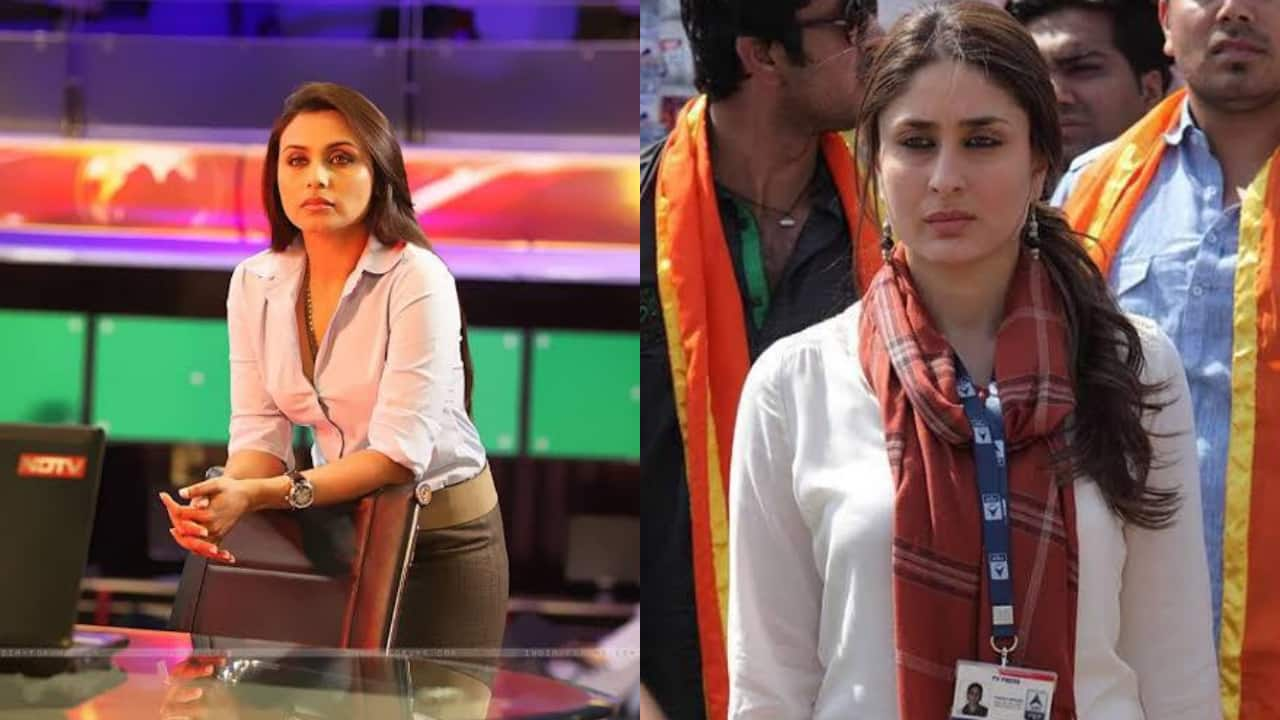The world of comedy is constantly evolving, but one thing remains constant: comedians push boundaries. In today’s hyper-sensitive climate, navigating controversy and dealing with on-stage tension is becoming an increasingly critical skill. How do comedians adapt, and what can we expect in the future? We delve into the evolving landscape, exploring how comedians are learning to balance humor with heightened audience expectations.This exploration includes real-life examples, potential shifts in comedic styles, and the increasing importance of authenticity in an era defined by rapid social media feedback.
Comedy has always been a reflection of society, often pushing boundaries to provoke thought and laughter. Though, the rise of social media has amplified audience voices, creating a landscape where comedians face immediate feedback and potential backlash for jokes that miss the mark. This shift requires comedians to be more aware of cultural sensitivities and the potential impact of their words.
One notable example is the experience of Kathy Griffin, who faced important fallout from a controversial photo in 2017.Her subsequent interview on “The Late Show with Stephen Colbert,” where she felt challenged and emotionally vulnerable,highlights the tension comedians can experience when addressing controversial material. This incident sparked a broader discussion about the line between free speech and social responsibility in comedy.
Pro tip: Authenticity is key. audiences appreciate comedians who are genuine and transparent about their perspectives. Sharing personal experiences and vulnerabilities can create a stronger connection with the audience and build trust.
Social media has revolutionized how comedy is consumed and critiqued. Jokes now face immediate judgment, and a single misstep can lead to widespread condemnation, potentially impacting a comedian’s career.This phenomenon, often referred to as “cancel culture,” forces comedians to tread carefully and consider the potential consequences of their material.
Comedians are increasingly using platforms like Twitter and Instagram to engage with their audience, gauge reactions, and even address controversies directly. Some comedians are adapting by incorporating audience feedback into their routines, while others are doubling down on their controversial styles, sparking further debate.
Did You Know? A recent study showed that 60% of Americans believe social media has made comedy more divisive. This statistic underscores the challenge comedians face in appealing to a broad audience in the digital age.
Several comedians have faced significant backlash in recent years, providing valuable insights into how to navigate this complex landscape.
These cases demonstrate the importance of self-awareness, empathy, and a willingness to engage in constructive dialog. Comedians who ignore criticism risk alienating their audience, while those who listen and adapt can build stronger relationships and navigate controversy more effectively.
Several trends are emerging that will likely shape the future of comedy:
Pro Tip: Engage with yoru audience! Use social media to solicit feedback, answer questions, and build a community around your comedy. This can help you gauge audience reactions and avoid potential controversies.
The greatest challenge for comedians today is finding the balance between pushing boundaries and being responsible. This requires a deep understanding of societal issues, empathy for diverse perspectives, and a willingness to engage in critical self-reflection.
Comedians can use their platform to spark vital conversations, challenge societal norms, and promote understanding. However, they must also be aware of the potential for harm and strive to create humor that is inclusive and respectful.
Empathy is becoming an increasingly important attribute for comedians. By understanding and acknowledging different perspectives, comedians can create humor that is both funny and thought-provoking.
Empathy can also help comedians navigate controversy more effectively. By demonstrating a willingness to listen and learn, they can build bridges with audiences who may initially disagree with their views.
Did You Know? A survey of comedy club owners revealed that 75% believe audiences are more sensitive to potentially offensive jokes than they were five years ago. This highlights the growing need for comedians to be mindful of their audience’s sensibilities.
in 2024, the dynamics remain complex. The challenges of navigating the tightrope between humor and public sensitivity will continue to demand adaptability and a heightened sense of social awareness from comedians. The landscape is ever-changing, and comedy must evolve alongside it.
The ability to connect with audiences authentically, understand diverse perspectives, and use humor responsibly will determine who succeeds and thrives in the comedy scene.
| Trend | Description | Impact on Comedians |
| Increased Sensitivity | greater awareness of cultural and social issues. | Comedians must be more mindful of their material and its potential impact. |
| Social Media’s Influence | Instant feedback and potential for widespread backlash. | Comedians need to manage their online presence and engage with audiences effectively. |
| Authenticity and Relatability | Audiences value genuine and relatable humor. | Comedians should focus on sharing personal stories and connecting with audiences on a deeper level. |
| Niche Comedy | Rise of comedy scenes catering to specific interests. | comedians can find success by targeting niche audiences and creating relevant content. |
- What is “cancel culture,” and how does it affect comedians?
-
“Cancel culture” refers to the phenomenon where individuals face widespread condemnation and potential career repercussions for perceived missteps. For comedians, this can mean facing backlash and losing opportunities for jokes that are deemed offensive or insensitive.
- How can comedians navigate controversy effectively?
-
Effective navigation involves self-awareness, empathy, and a willingness to engage in constructive dialogue. Comedians can listen to criticism, acknowledge different perspectives, and adjust their material as needed.
- What role does authenticity play in modern comedy?
-
Authenticity is crucial. audiences appreciate comedians who are genuine and relatable. Sharing personal experiences and vulnerabilities can create a stronger connection and build trust.
- How is technology influencing the future of comedy?
-
Technology is enabling new formats, interactive performances, and virtual reality experiences. Comedians are using technology to experiment and engage with audiences in innovative ways.
Archyde News is excited to bring you an exclusive interview with Anya Sharma, a rising star in the comedy world.Anya has been making waves with her insightful and often provocative takes on modern life. We’ll be discussing the challenges and opportunities facing comedians today, particularly in the increasingly sensitive climate of 2024.
Archyde: anya, welcome to Archyde News. It’s a pleasure to have you. Comedy has always been a mirror to society, but it feels like the reflection is constantly shifting. How have you personally adapted to this evolving landscape where jokes can instantly trigger both laughter and backlash?
Anya Sharma: Thanks for having me! It’s definitely a tightrope walk. The biggest shift I’ve noticed is the immediacy of feedback, thanks to social media. A joke that might have played well with a live audience can go viral and be misinterpreted or taken out of context. I’ve learned to be more strategic about the distribution of my material and to really think about the potential impact of my words, even if the intention is purely humorous.
Archyde: The article mentions “cancel culture”. Have you had any personal experiences with the impact of social media and the pressures of what is sometimes known as “cancel culture” on yoru career?
Anya Sharma: I’ve been lucky enough to avoid any major “cancellations,” but I’ve certainly felt the pressure. I’ve learned to engage with criticism constructively, and to be open to the idea that not every joke lands with every audience member. One time,I made a joke about a sensitive topic,and the response was mixed,so I took the time to understand where the criticism was coming from. Then I reworked the material, and the next time I told the joke, it was well-received by a wider audience. Transparency and acknowledging your audience’s feelings can really build a bridge rather of burning one.
Archyde: The article also talks about authenticity being key. How do you balance being authentic with the need to avoid possibly offensive territory?
Anya Sharma: Authenticity is everything. I believe your voice and thoughts comes through in genuine comedy. For me, that means sharing my personal experiences, even the vulnerable ones. But I’m also mindful of the potential for unintentionally causing harm. I’ve begun to do a bit more research on topics I want to joke about, making sure I understand the nuances from diffrent perspectives. It’s about finding that sweet spot where you can be both funny and respectful.
Archyde: Empathy seems to be increasingly vital in comedy. How do you incorporate empathy into your routines, especially when tackling potentially controversial subjects?
Anya Sharma: Empathy is essential. Before I write a joke about a sensitive issue, I try to put myself in the shoes of someone who might be affected by it. I ask myself, “What would it feel like to hear this joke?” and I try to provide alternative perspective alongside my comedy. It informs my jokes,and it keeps me from crossing lines I don’t want to cross.
Archyde: Looking ahead,what trends do you see shaping the future of comedy?
Anya Sharma: I think we’ll see more niche comedy thriving. Audiences are more diverse then ever, and they want to see themselves reflected on stage. I also think we’ll see more integration of technology—interactive shows, virtual reality experiences. And, of course, a growing emphasis on authenticity and genuine connection with audiences. It’s a brave new world, but also a great one for comedy.
Archyde: The act of balancing humor and responsibility is what creates the comedy. It’s a tightrope walk. How do you manage this balance?
Anya Sharma: It’s not always easy. You have to cultivate an awareness of the impact your jokes could have. I strive to be mindful of cultural sensitivities and trying to avoid harmful stereotypes. I also try to be open to feedback. It’s a constant process of learning and adapting.
Archyde: This has been incredibly insightful. Thank you for sharing your perspectives,Anya.
Anya Sharma: Thank you for having me. It’s been great!
Thought-Provoking Questions for Readers
What do you think is the most critically important factor for a comedian to succeed in today’s environment? Share your thoughts in the comments!









:max_bytes(150000):strip_icc():focal(749x0:751x2)/jasmine-tookes-sabrina-castenfelt-051425-1-08faade08f5d4c00b039f78982a4437f.jpg)


